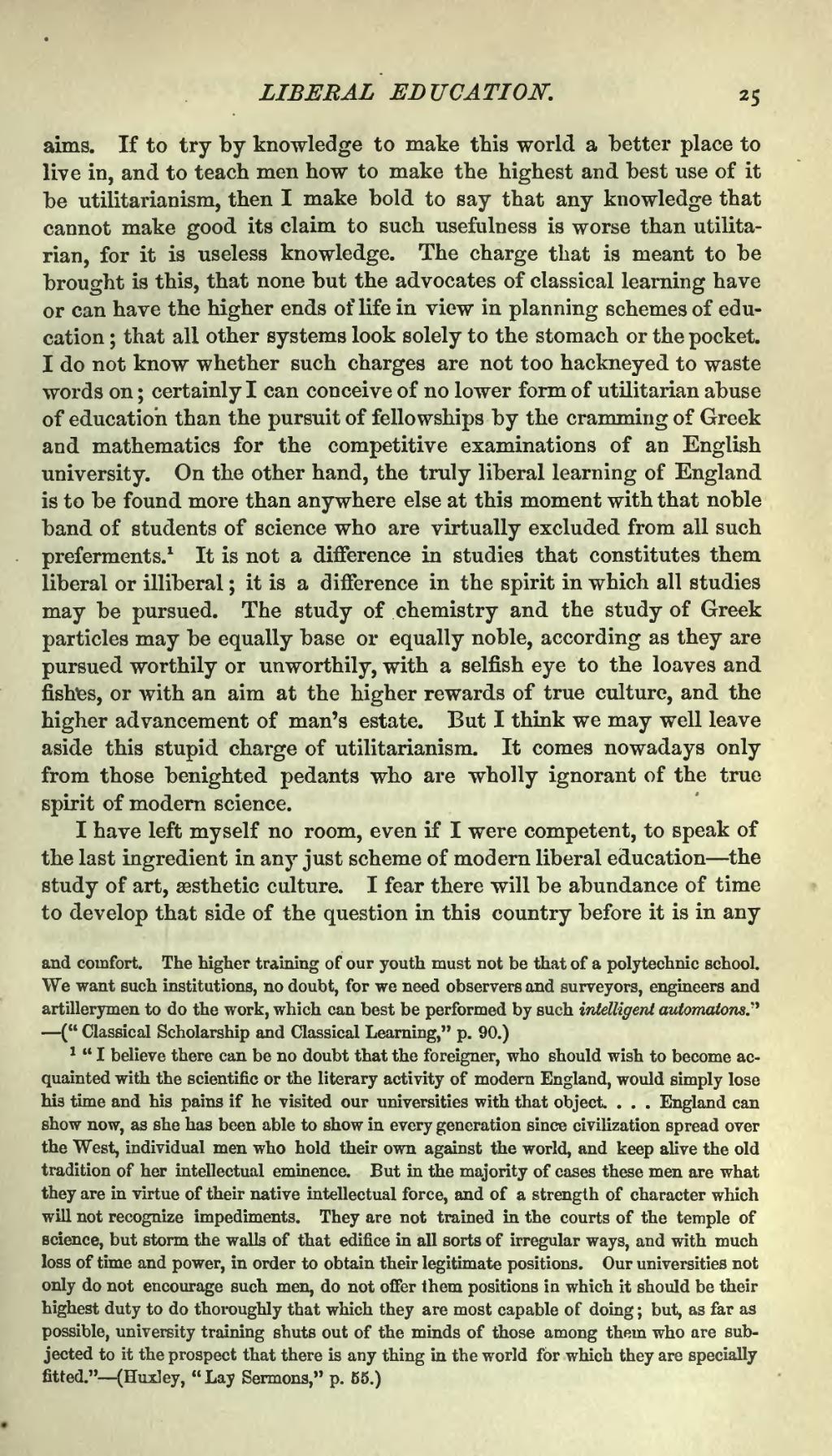aims. If to try by knowledge to make this world a better place to live in, and. to teach men how to make the highest and best use of it be utilitarianism, then I make bold to say that any knowledge that cannot make good its claim to such usefulness is worse than utilitarian, for it is useless knowledge. The charge that is meant to be brought is this, that none but the advocates of classical learning have or can have the higher ends of life in view in planning schemes of education; that all other systems look solely to the stomach or the pocket. I do not know whether such charges are not too hackneyed to waste words on; certainly I can conceive of no lower form of utilitarian abuse of education than the pursuit of fellowships by the cramming of Greek and mathematics for the competitive examinations of an English university. On the other hand, the truly liberal learning of England is to be found more than anywhere else at this moment with that noble band of students of science who are virtually excluded from all such preferments.[1] It is not a difference in studies that constitutes them liberal or illiberal; it is a difference in the spirit in which all studies may be pursued. The study of chemistry and the study of Greek particles may be equally base or equally noble, according as they are pursued worthily or unworthily, with a selfish eye to the loaves and fishes, or with an aim at the higher rewards of true culture, and the higher advancement of man's estate. But I think we may well leave aside this stupid charge of utilitarianism. It comes nowadays only from those benighted pedants who are wholly ignorant of the true spirit of modern science.
I have left myself no room, even if I were competent, to speak of the last ingredient in any just scheme of modern liberal education—the study of art, æsthetic culture. I fear there will be abundance of time to develop that side of the question in this country before it is in any
- ↑ "I believe there can be no doubt that the foreigner, who should wish to become acquainted with the scientific or the literary activity of modern England, would simply lose his time and his pains if he visited our universities with that object.... England can show now, as she has been able to show in every generation since civilization spread over the West, individual men who hold their own against the world, and keep alive the old tradition of her intellectual eminence. But in the majority of cases these men are what they are in virtue of their native intellectual force, and of a strength of character which will not recognize impediments. They are not trained in the courts of the temple of science, but storm the walls of that edifice in all sorts of irregular ways, and with much loss of time and power, in order to obtain their legitimate positions. Our universities not only do not encourage such men, do not offer them positions in which it should be their highest duty to do thoroughly that which they are most capable of doing; but, as far as possible, university training shuts out of the minds of those among them who are subjected to it the prospect that there is any thing in the world for which they are specially fitted."—(Huxley, "Lay Sermons," p. 55.)
and comfort. The higher training of our youth must not be that of a polytechnic school. We want such institutions, no doubt, for we need observers and surveyors, engineers and artillerymen to do the work, which can best be performed by such intelligent automatons."—("Classical Scholarship and Classical Learning," p. 90.)
